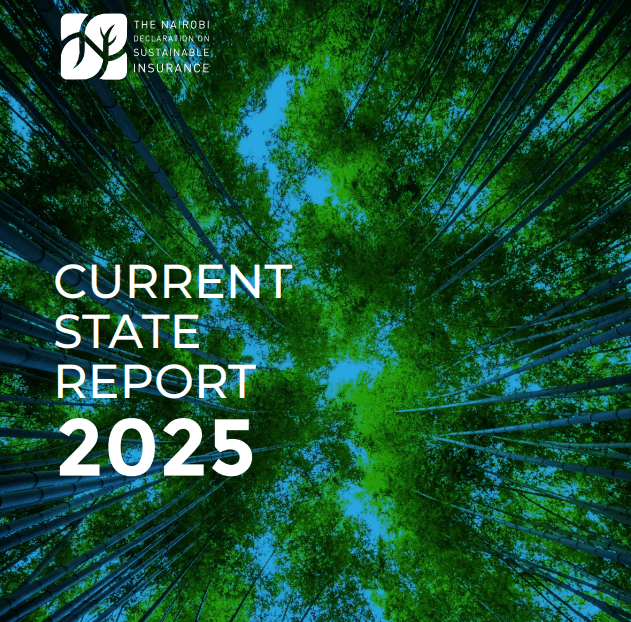Resilient insurance providers in Africa rely on transparency and accountability as foundational principles.
ESG reporting has become essential for insurance companies operating within Africa’s fast-evolving financial landscape.
Through their actions, companies demonstrate reliability while drawing sustainable investment to African insurance markets and following emerging ESG regulatory requirements.
African insurers who incorporate ESG principles into their operational and disclosure practices demonstrate a commitment that surpasses mere compliance.
These practices are direct paths to long-term value creation, community trust, and competitive relevance in a global economy leaning heavily on sustainability metrics.
Why ESG Reporting Is Essential for African Insurers
Across Africa, insurance businesses face a demand to change their reporting.
A focus on environmental, social and governance standards in finance encourages businesses to create a meaningful impact for people and the planet.
Good ESG practice in African insurance shows how insurers handle:
- Climate risk in underwriting in Africa.
- Fair access to insurance.
- Corporate governance and ethics in decision-making.
This also readies them for ESG-aligned regulations in emerging markets like Kenya, Nigeria and South Africa, where sustainable insurance is gaining speed.
Insurers not sharing ESG performance numbers risk missing out on green finance chances in Africa. They also risk losing trust from policyholders who value ethical insurance.
Common ESG Reporting Challenges in Africa
Applying global ESG reporting frameworks in Africa isn’t just a plug-and-play. There are very real roadblocks, which include:
- Inconsistent ESG data collection in African insurance firms
- Lack of localized ESG benchmarks and standards
- Limited ESG compliance training for insurance professionals
These challenges highlight the need for shared learning platforms, regional ESG capacity-building, and guidance from African-led frameworks, like those championed by the Nairobi Declaration on Sustainable Insurance.
Top 6 ESG Reporting Best Practices for African Insurers

If you’re an insurer in Africa looking to build a more transparent and accountable insurance brand, here are six ESG best practices to follow:
1. Tie ESG Strategy to Core Insurance Activities
Instead of general pledges, connect your ESG goals to core insurance operations such as underwriting, claims, and investments.
It is important to be specific and showcase ways of de-risking agricultural insurance portfolios, offering inclusive insurance for the informal sector, or prioritizing environmentally conscious investment strategies.
This moves ESG from just talk to practical, sustainable insurance delivery.
2. Localize Global ESG Frameworks
A one-size-fits-all model won’t reflect the African insurance landscape.
It is important to address regional challenges like water scarcity, disaster risk financing gaps, access to energy-related insurance and access to insurance for vulnerable communities.
Additionally, embed metrics that track how your company supports climate resilience in underserved communities, gender-responsive insurance initiatives, or renewable energy insurance products.
3. Adopt Integrated ESG Reporting Approaches
When ESG insights are siloed from financials, they lose context. Instead, use integrated sustainability reporting to show how your sustainable business model directly impacts financial performance and risk management.
This approach is becoming essential for insurers seeking ESG-aligned capital and green investors in Africa.
4. Map and Report on Climate Risks Transparently
Africa is highly climate-vulnerable. That makes climate risk disclosure for insurers non-negotiable.
Outline your exposure to floods and droughts and how you plan to respond.
Additionally, use climate scenario analysis, geospatial data, and localized climate risk mapping.
This shows regulators and reinsurers that your organization is not just aware but actively climate-adaptive.
5. Track and Share Social Impact
Modern insurers need to move beyond corporate social responsibility.
They need to go beyond that by showing how they are promoting financial inclusion through insurance, supporting ethical claims processing, and enabling access to healthcare insurance in rural or underserved regions.
These demonstrate tangible social impact in Africa’s insurance ecosystem.
6. Strengthen Governance Reporting with Specificity
Strong governance is exhibited through strong policies.
By highlighting policyholder feedback and grievance redress mechanisms, credibility is boosted among global ESG investors, thus aligning with rising expectations for transparency in African financial institutions.
How Technology Can Improve ESG Reporting for Insurers
Insurers can’t scale ESG without digital and technology innovation. This includes tools like:
- AI-driven ESG data collection systems
- Blockchain for transparent claims tracking
- Cloud platforms for automated sustainability reporting
This helps insurers reduce errors, save time, and improve accuracy in their ESG performance reports. Adopting insurance tech for ESG compliance is a competitive edge.
How NDSI Supports ESG in African Insurance
The Nairobi Declaration on Sustainable Insurance is not just driving sustainability in insurance; they are fostering collaborative frameworks.
Through NDSI, insurers can:
- Access to training and learning and development activities on the fundamental concepts of ESG for insurance.
- Access to an interactive online ESG Toolkit for self-application in the development and implementation of an ESG strategy
- Join a community of practice to collaborate with African insurance sector players on ESG
- Benefit from bespoke technical assistance on ESG strategy and product development
NDSI is helping insurers move to ESG transformation by turning strategy into action.
Why ESG Reporting Is a Strategic Advantage
When done right, ESG reporting transforms insurers from policy makers into community builders. It builds:
- Trust with clients
- Alignment with sustainable investors
- Preparedness for regulation
- Visibility in global development conversations
This is how insurance not only becomes a business but also a tool for solving coverage and regulatory challenges.
Conclusion
For African insurance providers, sustainable and responsible business practices begin with transparency and accountability.
ESG reporting best practices are about clarity, stakeholder trust, and future-proofing your insurance operations in a continent rich with opportunity but exposed to systemic risk.
Insurers who lead on ESG today are shaping the future of Africa’s insurance and finance landscape tomorrow.

